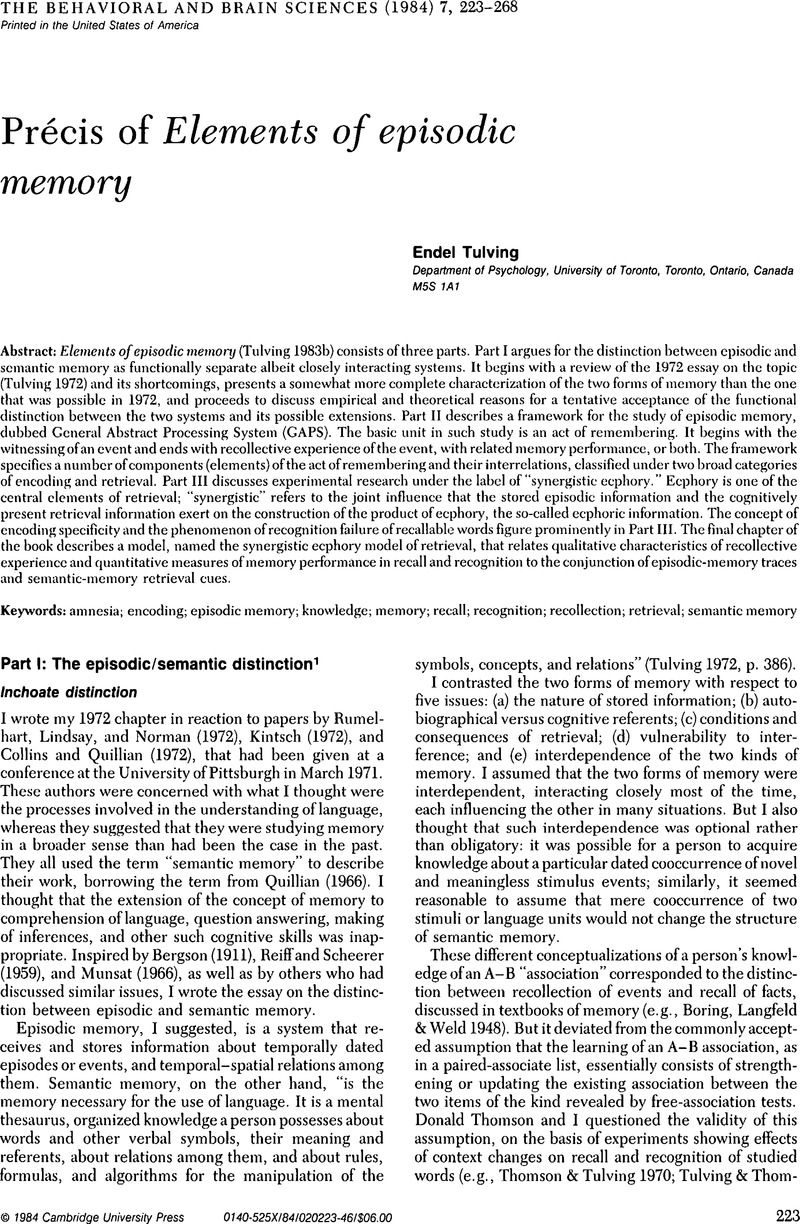Crossref Citations
This article has been cited by the following publications. This list is generated based on data provided by Crossref.
Kroll, Neal E. A.
Ogawa, Keith H.
and
Nieters, James E.
1988.
Eyewitness memory and the importance of sequential information.
Bulletin of the Psychonomic Society,
Vol. 26,
Issue. 5,
p.
395.
Shapiro, Michael A.
and
Fox, Julia R.
2002.
The Role of Typical and Atypical Events in Story Memory.
Human Communication Research,
Vol. 28,
Issue. 1,
p.
109.



